‘AITA for suggesting my teacher host my son’s party at her house?’
Tonight we have OP (the mom) vs her sons teacher, “Lorna”, in the battle over a birthday party. Lorna, who learned of the party from fellow students, argues against giving OP a pass and argues he needs to invite the entire class to avoid exclusion. OP says no though because her apartment cannot fit 32 kids + parents and furthermore tells Lorna she doesn’t get to choose the guest list. So Lorna then says that we need to find a bigger venue, to which OP sarcastically suggests Lorna’s house. In Hingson’s mind, OP has taken things a step further — even sending Lorna an email with a rough draft of a letter supposedly inviting the teacher to their house, although OP says she never planned to show anyone.
She backs off and OP’s husband is like I agree with her but not how she expressed herself. Did OP take it too far and cross the line? OP has some wondering to do.
Read for more info Reddit
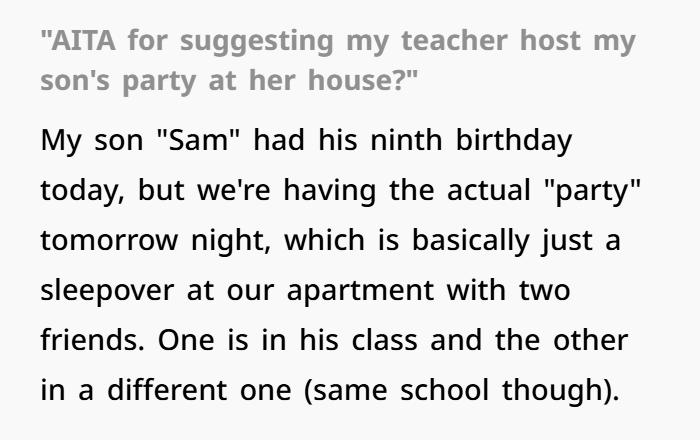

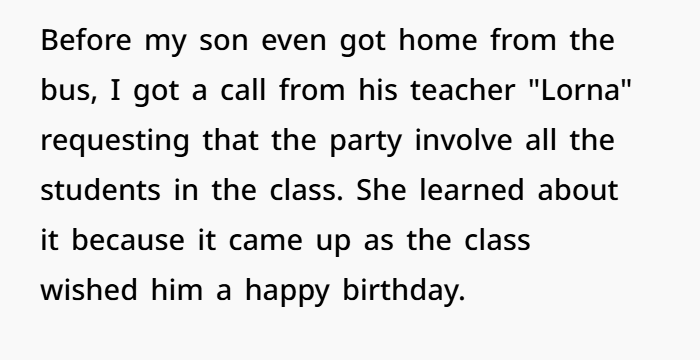

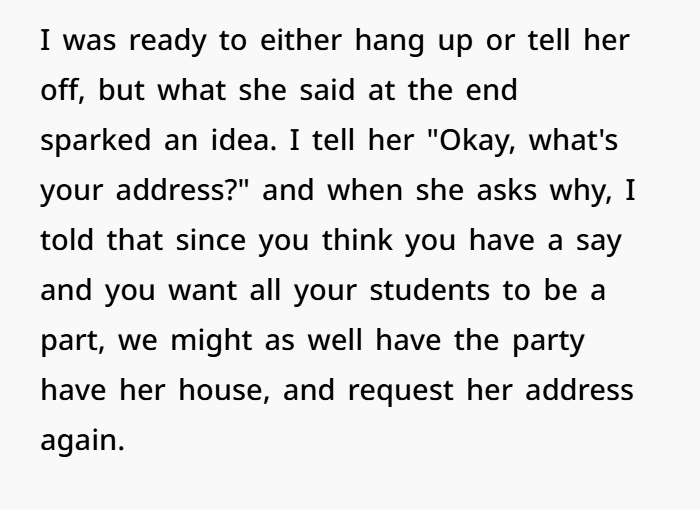
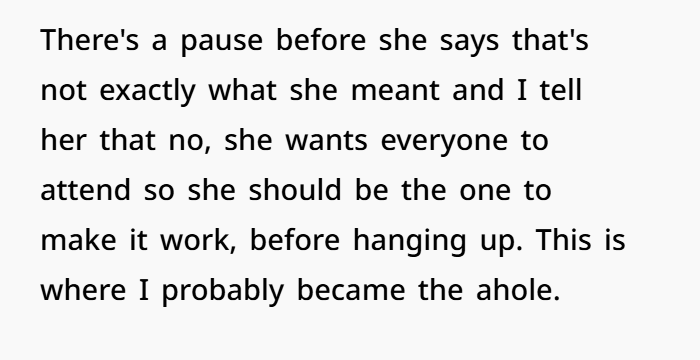
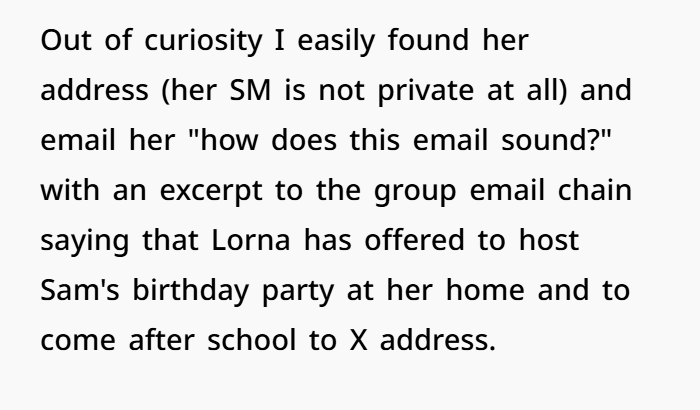
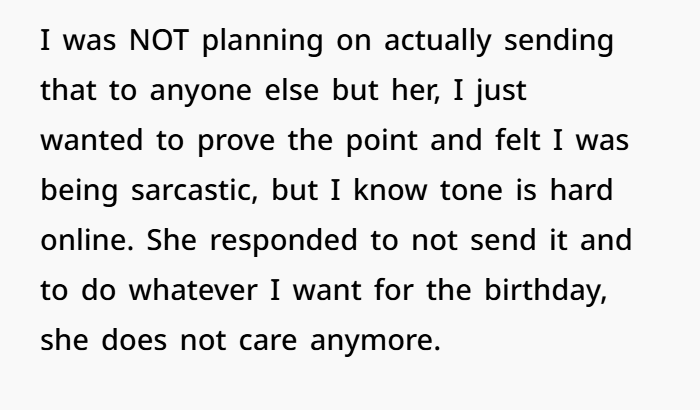
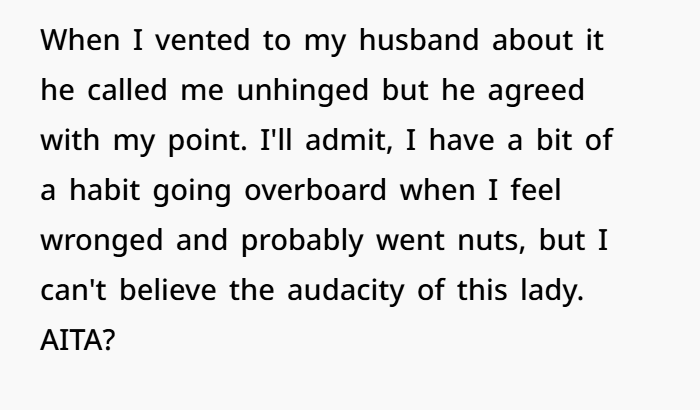
This has ramifications that go beyond your average overlap of boundaries, fellow inclusion and diversity advocates! Here’s a breakdown:
Teacher’s Role and Overreach
Lorna’s first instinct to want to have the whole class is due to a school-wide policy around inclusion. Some schools have informal or formal rules that recommend students invite everyone in the class to social events (if students are inviting people publicly) so that no one feels left out. Although well-meaning, these are usually only applicable to the school day. This intervention at a parent directly, which is a private outside of school event, is a crossing of professional boundaries for a teacher.
Parental Boundaries
Parents have every right to choose what social events be held for a child. It’s not OP’s responsibility to host this little party, and an insistence by Lorna crosses the line and is an invasion of OP’s territory and it also is dismissive of the financial, logistical, or social consequences. We can understand OP’s frustration — telling someone how to host at their place is an intrusion. Even if OP’s answer wasn’t the best, that wasn’t the response to give in a resolution and taking it to a further argument where it didn’t need to go.
Sarcasm and Escalation
Although sarcasm can be an effective way of pointing out absurdity, expressing it in this way may have crossed the line from sarcasm to vindictiveness. Full article: Content and Context of Advertising Communication — Research in Social Dynamics suggests that escalation of conflict often worsens miscommunication and maintains the relationship damage (Baumeister & Leary, 1995). Searching for Lorna’s address and sending the email draft, OP crossed the line of professionalism. Although the email wasn’t published, the intention of intimidation—or to “make a point”—may seem particularly small-minded or even harassment.
Well first off, cultural norms and expectations.
Birthday parties, like many social norms around inclusion, wildly differ by culture and SES. In some communities, such as this one, the norm is to include the entire class in celebrations; in others, it may be customary or unavoidable to hold smaller gatherings. Nevertheless, a balance should be struck between instilling kindness in children and respecting the autonomy of the family.
Here’s what top commenters had to say about this one:
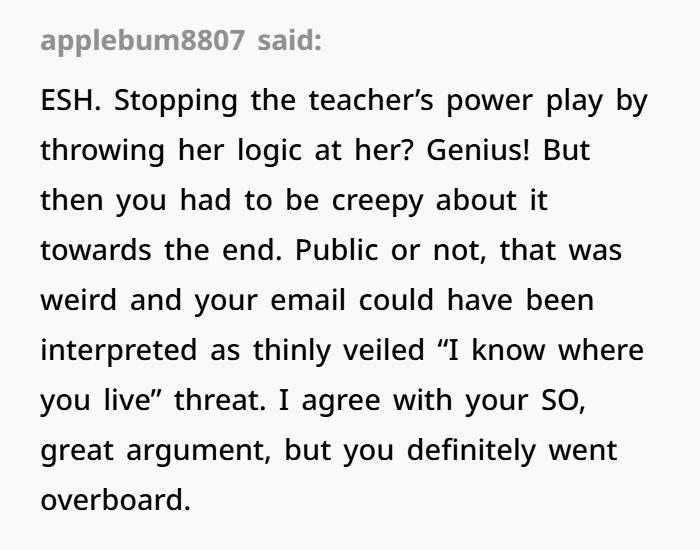
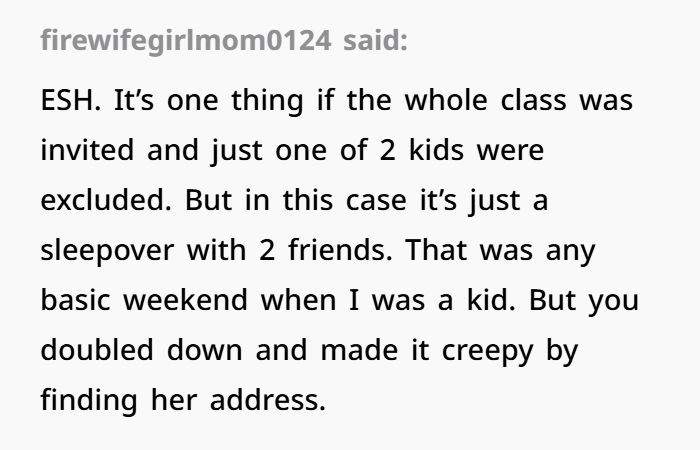
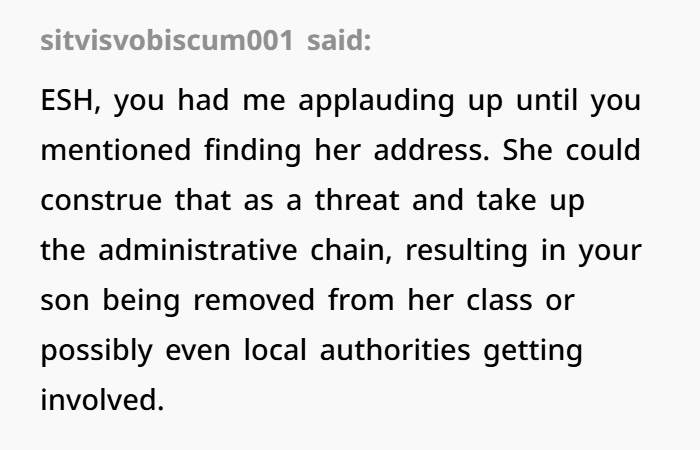
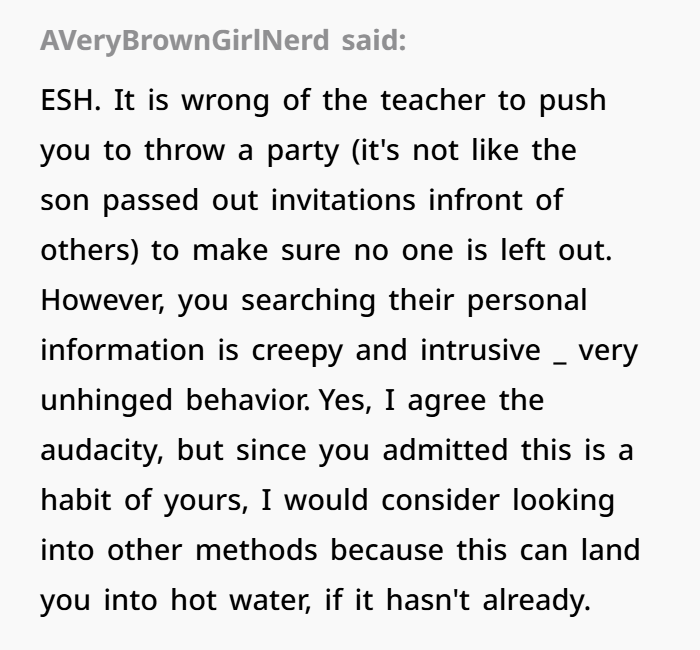
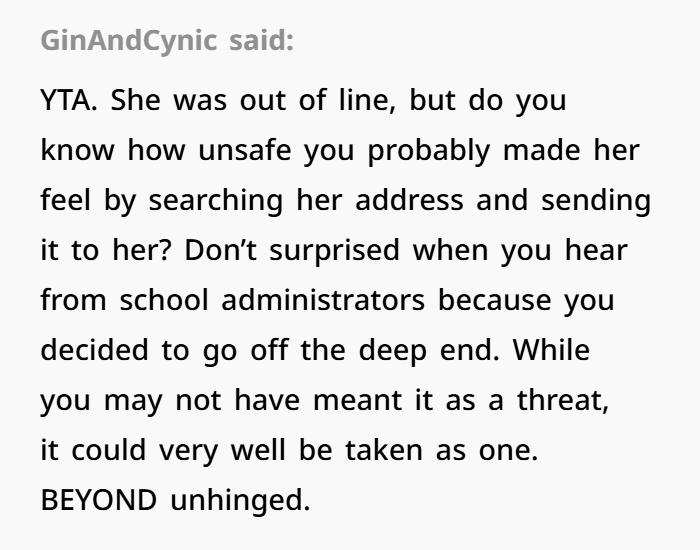


Verdict: Everyone Sucks Here
Lorna: Crossed over into telling OP how to host a private event. She believes in inclusion, but as an adult — not necessarily her job to create in the greater world outside of school.
OP: Valid point, but ended up intensifying the problem with passive-aggressive suggestions to use Lorna’s house for an event and sending the email draft. This went from establishing boundaries to being petty.
Recommendation:
Perhaps OP could apologize to Lorna, explain that she was over the line in her response, whilst still maintaining her stance. It can provide a means for the teacher to distance from the sensations of attempting to develop and maintain a professional relationship between the teacher and the family, while also effectively establishing a boundary for all future contact.

